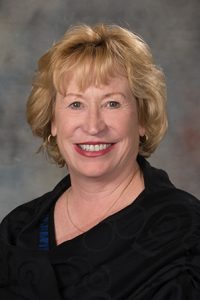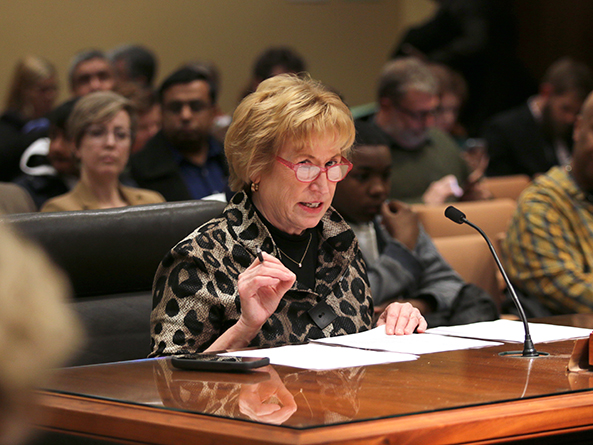Tax credit for private school scholarship contributions proposed
Individuals, businesses and other entities would be eligible for an income tax credit for contributing to nonprofit organizations that grant scholarships to students to attend a private school under a bill heard Feb. 19 by the Revenue Committee.
Under LB1202, introduced by Elkhorn Sen. Lou Ann Linehan, individuals, passthrough entities, estates or trusts and corporations would be eligible for a nonrefundable income tax credit of up to 50 percent of the taxpayer’s state income tax liability for the tax year on contributions they make to scholarship-granting organizations.
Linehan said Nebraska is one of only three states that does not have a similar program. LB1202 would help more low-income families send their children to private school if they feel it is a better fit for them than a public school, she said.
“We must do what is right for every kid in Nebraska who is looking for more educational opportunities,” Linehan said.
Only Nebraska residents would be eligible for scholarships, which could be used to pay tuition and fees at an accredited, nonprofit, nongovernmental, privately operated elementary or secondary school located in Nebraska.
A child who is in foster care or out-of-home care or is a dependent member of a household that qualified for benefits in the preceding year under the federal Supplemental Nutrition Assistance Program would be eligible for the scholarships if they meet certain other requirements.
Doug Kagan of Nebraska Taxpayers for Freedom testified in support of LB1202. He said similar scholarship programs in other states have saved taxpayers money by reducing public school class sizes.
Christopher Uttecht, principal of Cedar Catholic High School and Holy Trinity Elementary School in Hartington, also testified in support. Uttecht said every parent has a constitutional right to determine the best education for their children. However, he said, that right is restricted for many families who wish to send their children to private school but lack the financial means to do so.
Uttecht said many would-be private school students are turned away because existing scholarship programs do not have enough funds to meet demand.
Jayleesha Cooper of Omaha also testified in support of the proposal, saying that receiving scholarships to attend private schools “opened a whole new world” to her. Cooper, who attends Duchesne Academy of the Sacred Heart on scholarship, said she did not know her true potential until she enrolled at a private school, an opportunity many young people in her community do not have.
In her family, Cooper said, graduating from high school is rare.
“I never would have thought that I would be getting recruitment letters from Harvard and Yale and Duke,” she said.
Connie Duncan, a Lincoln Public Schools board member, testified in opposition to the bill on behalf of the Nebraska Association of School Boards. She said it would prohibit scholarship granting organizations from discriminating on the basis of race but not on physical disability, religion or whether a student has an individualized education program.
In addition, those organizations would not be required to report how contributions are spent, provide a demographic summary of students who receive scholarships or describe recipients’ academic outcomes, Duncan said.
“This is in stark contrast to the transparent financial and academic accountability systems required of public schools,” she said.
Also testifying in opposition was Ann Hunter-Pirtle, executive director of Stand for Schools. She said the proposal would divert public funds to private schools at a time when Nebraskans are asking for property tax relief.
Hunter-Pirtle said donations to private school scholarship programs already are eligible for state income tax deductions and that no other charitable giving is eligible for a dollar-for-dollar credit as provided for in LB1202.
Molly Davies, an Omaha Public Schools English teacher, also testified in opposition to the bill, saying such proposals have not been proven to produce better outcomes for students. Davies said LB1202 would reduce tax revenue that could be used to support public schools, which serve the vast majority of students in poverty.
“Real opportunity is being able to send your kids to a free and high-quality school that is publicly funded and accountable, no matter where you live, what you believe, which languages you speak, whom you love and what your disability status might be,” she said.
The committee took no immediate action on the bill.


